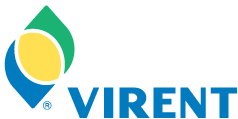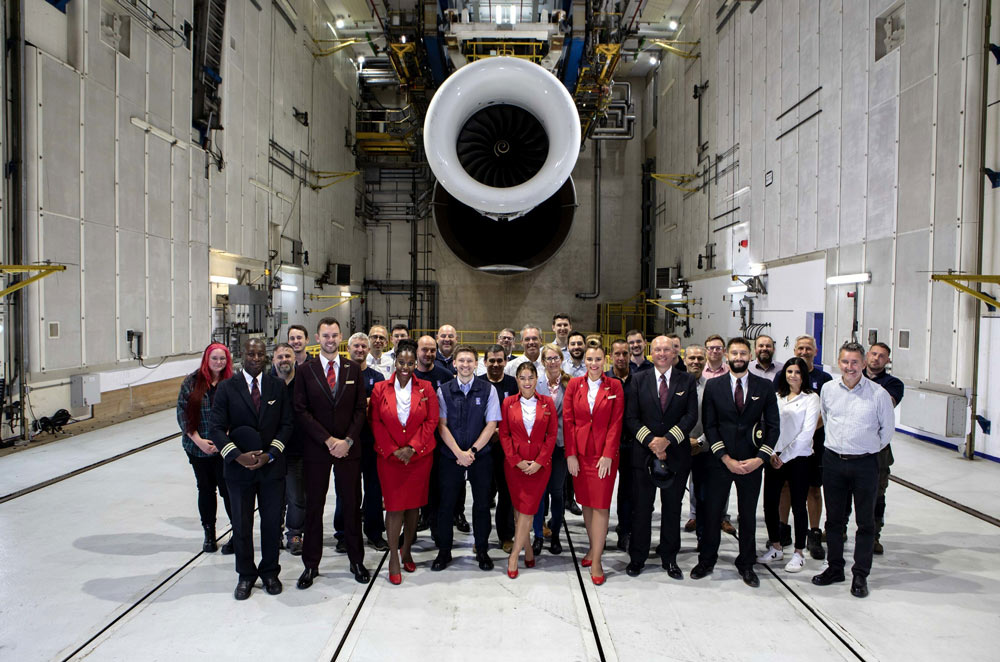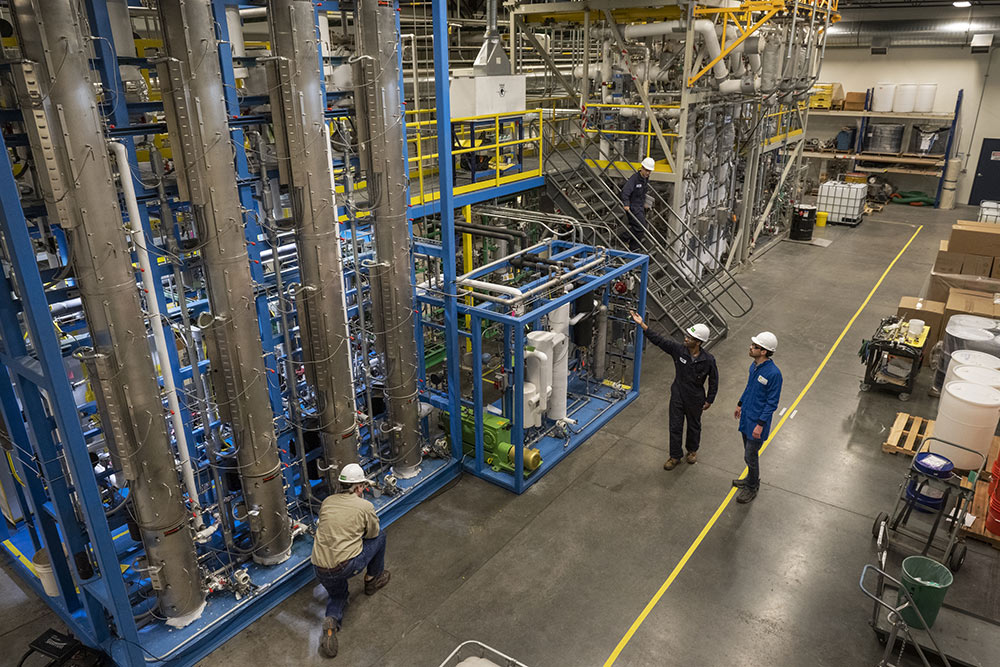Virent’s BioForm® SAK set to empower another aviation industry first
Virent’s BioForm® synthesized aromatic kerosene played a key role in a recent jet engine ground test of sustainable aviation fuel (SAF) in preparation for the first-ever transatlantic flight powered by 100% SAF. The ground test was conducted on a Rolls-Royce Trent 1000 engine, the same type of engine that will power a Virgin Atlantic Boeing 787 from London’s Heathrow Airport to New York’s John F. Kennedy International later this year.
SAF – made from used cooking oil or other plant-based oil feedstocks – typically has to be blended with petroleum products because SAF lacks a component called “aromatics,” which are required to meet today’s jet fuel specifications. Virent’s sugars-to-aromatics (S2A) technology produces synthesized aromatic kerosene (SAK) from renewable plant sugars to provide aromatics that are cleaner-burning and more efficient than those in petroleum fuel, enabling 100% SAF without the need for petroleum blending.
For the Virgin Atlantic transatlantic flight, Air bp will provide the bulk of the SAF – the 88% consisting of the paraffinic compounds – while Virent’s SAK will make up the remaining 12%.
“With Virent’s plant-based SAK providing the aromatics, this test showed that 100% drop-in renewable fuel is cleaner burning and will work seamlessly in today’s commercial airline engines,” said Dave Kettner, president and general counsel of Virent. “With the support of our parent company Marathon Petroleum Corporation and our technology partner Johnson Matthey, we are making great strides in sustainable fuels.”
Getting the 100% SAF transatlantic flight off the runway and into the skies requires cross-industry collaboration and dedicated project teams working on the research, testing and operations. The effort is being undertaken in the United Kingdom (UK) by a consortium led by Virgin Atlantic, jointly funded by the UK Department for Transport, and including Rolls Royce, Boeing, University of Sheffield, Imperial College London, and the Rocky Mountain Institute. Virent has been coordinating closely with the consortium as planning progresses toward the milestone flight.
“This kind of collaboration isn’t new to Virent, and in fact I’d say cross-industry collaboration has become one of our core competencies,” said Kettner. “Just in the SAF space alone, we have been working domestically, internationally, and with a variety of airlines and equipment manufacturers to help demonstrate that – with our BioForm SAK – 100% drop-in SAF works with today’s airline fleet and requires no modifications to engines or fueling infrastructure.”
In addition, to July’s jet engine ground test, some of Virent’s recent successful collaborations in sustainable aviation include:
- 2023: Virent’s BioForm SAK made the 100% SAF possible for a Bell Helicopter demonstration flight, making the Bell 505 the first-ever single engine aircraft to fly using 100% SAF.
- 2023: Virent’s SAK helped power an Emirates Airline demonstration flight, the first in the Middle East and North Africa to use 100% SAF in one engine and traditional jet fuel in the other.
- 2022: Virent’s BioForm® SAK made 100% SAF possible for the first original equipment manufacturer test flight of an ultralong-range business jet by Rolls Royce and Gulfstream.
- 2021: Virent contributed to an aviation industry first with its BioForm SAK, as United Airlines flew an aircraft full of passengers using 100% SAF in one engine and traditional jet fuel in the other.
“We’re honored to collaborate with Virgin Atlantic, Rolls-Royce and Air bp as these forward-looking companies lead the way in sustainable aviation,” said Kettner. “Virent shares their commitment to finding sustainable ways to fly, and we’re excited about the pivotal role our BioForm SAK will play in this milestone transatlantic flight.”


